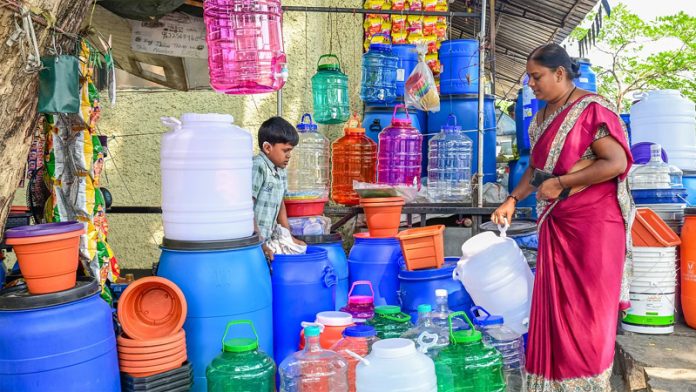It was a monsoon-soaked morning in Thiruvananthapuram on June 22, 1959. Prime Minister Nehru landed at the capital’s airport by a special aircraft from Delhi to be received by Chief Minister EMS Namboodiripad, and others. The Prime Minister’s visit was to personally examine the reported collapse of the state's law and order following the “liberation struggle” ( ) against the EMS ministry, India’s first non-Congress and Communist state government.
Spearheaded by Christian churches and Hindu caste organisations like the Nair Service Society (NSS) and backed by the Congress-led Opposition, including the Muslim League, the struggle was marked by widespread violence and counter-violence. All along the Prime Minister’s route from the airport to the Raj Bhavan, crowds stood on the sides shouting slogans and raising placards demanding the two-year-old EMS ministry’s dismissal by the centre. When they met again in the evening, Nehru asked EMS, “How could you make so many enemies in such a short time?” Back in Delhi, a hesitant Nehru, under pressure from his daughter and Congress President Indira Gandhi, had President Rajendra Prasad dismiss the EMS ministry on July 31.

It shouldn’t be surprising if Chief Minister Pinarayi Vijayan faced the same question Nehru asked EMS today. Since 1959, few state governments in Kerala have faced the kind of all-around hostility that the present three-year-old Left Democratic Front (LDF) government has, as shown in the recent Lok Sabha election. In my four decades of journalism, I don’t remember when the CPI (M) became a target of more collective wrath from the entire Malayalam media than now.
Perhaps the only exception was the above-mentioned EMS ministry of the days, which met widespread antagonism across political and religious spectrum and a belligerent press. However, there are a few fundamental differences between the two occasions. The hostility against the EMS government was triggered by the radical land reform and education bills that it brought to undermine the entrenched and vested interests of powerful feudal, religious and caste groups.
Will even its staunchest supporters credit the present government with radical steps of similar historic dimensions? On the contrary, much of the public and media ire against the present government has been caused by the CPI(M)’s repeated mistakes, excesses, arrogance, and stubborn refusal to admit or explain its follies. Compared to the stunning scandals and criminal cases involving the members of CPI(M) from top to bottom almost daily, the few allegations against the 1957 government, like the Andhra rice deal, etc, look trivial. Moreover, there was no trace of any wrongdoing in the name of families and friends of ministers or top leaders at that time.
Indeed, days were more innocent then. The second difference is that no direct or sustained agitations are being waged by the Opposition or religious/caste groups against the Pinarayi government. In 1959, Kerala witnessed a severe law and order issue due to the widespread street violence caused by the Vimochanasamaram and counter-violence by the police, including firings that killed about 20 persons in various incidents.
Kerala faces neither law and order failure nor does the BJP-led central government plans to dismiss the LDF ministry. What Kerala discusses most today is whether the CPI(M) would learn from its debacle in the recent election and mend ways. Though Vijayan and the party’s State Secretary M V Govindan admitted that the results were a setback, they dismissed any anti-incumbency wave.
Govindan forcefully rejected that the Chief Minister’s arrogance was the prime reason for alienating the party and the government from public. He pooh-poohed the queries about whether the party's district committees or the State Committee faced complaints about Pinarayi’s style of behaviour, as the media reported. “Wasn’t the same style that brought us back to power in 2021?” was Govindan’s stock question.
After a three-day review of the results, the CPI(M) Central Committee (CC) essentially endorsed the party State Committee’s reasons for the defeat. However, the CC has significantly (albeit half-heartedly) mentioned that “instances of arrogant behaviour of cadres -from top to bottom-are alienating people from the Party”. It underscored the importance of rectification to eliminate wrong trends, and ways must be undertaken in a planned manner.
The CC also admitted to the “erosion of our traditional base in several constituencies to the BJP” and the weakening of the Party’s live links with the people. The CC report marks a change from the central leadership’s recent attitude to look the other way even when the state party and government committed significant mistakes. Yet, hasn’t it come too late, too little? One would think so, considering the enormity of the present crisis faced by the CPI(M) in Kerala.
The leadership does not appear to believe that “extraordinary situations warrant extraordinary solutions”. Except for the worn-out homilies and cliches the party has been handing out for decades, the report is empty of anything innovative to salvage the party from the present abyss. The report’s most glaring weakness is its regurgitation on the “rectification” of the wrong trends growing in the party.
Interestingly, the CPI(M)’s official documents are enough to prove how futile the “rectification campaign” has been since launch almost three decades ago. The party campaign was called for the first time by the CC in 1996, as instructed by the 15th Party Congress, held in Chandigarh. The CC’s review report on the 1996 general elections said the rectification campaign was warranted as problems of “factionalism, group rivalries, individualism and careerism” in the party “testified to the growing corrosion of political consciousness and communist norms”.
It instructed the next CC meeting to discuss this in-depth and decide how this campaign must be conducted inside the party “to remove the wrong trends and defects in the organisation”. It may be recalled that this was when factionalism inside the Kerala CPI(M) rose between the official leadership (“CITU group”) and the minority faction led by VS Achuthanandan. However, a decade later, the CC found that the rectification campaign failed to yield good results.
“(We) have not been able to conduct the rectification campaign on a continuous and sustained basis," said the CC in 2009 after the 19th Party Congress of Coimbatore called for an update of the 1996 campaign. Nevertheless, it said that the factionalism within the party was being effectively addressed. By then, the factionalism in the Kerala party had undergone a fundamental change, with former allies Achuthanandan and Vijayan turning bitter foes and the latter establishing hegemony.
However, the report admitted to a continuing and cardinal failure; “The rectification process was not adopted from the top, from the Politburo and CC”. The next major landmark in the party’s self-criticism was the Organisational Plenum held in Kolkata in December 2015. (The credit, which is very significant also, that the Communists deserve is that only they undertake such merciless analysis in self-criticism, periodically even if they fail to solve the flaws).
By then, the CPI(M) had begun its massive decline with its defeat in West Bengal in 2011 after 34 years in power. Presenting his 12-page draft organisational report before the 443 delegates, General Secretary Prakash Karat made a comprehensively self-critical analysis of the CPI(M). He stated unequivocally that the party was suffering from massive alienation from the masses and held the leadership, including him, accountable.
He listed out a host of internal maladies afflicting the party, like erosion of ideological tenor, abuse of power corruption, rise of money and muscle power, style of functioning of leadership, lack of democratic centralism, low quality of membership, absence of leaders from working class, youth, women, minorities and backward castes. Karat also rolled out several flaws commonly mentioned in the Marxist lexicon, like parliamentarism, federalism, liberalism, subjectivism, etc, that have crept into the organisation. There was also a long section on how the rectification campaign failed again.
Karat noted no improvement in the overall situation and, in certain cases, further deterioration. The report mentioned various complaints against comrades like lavish lifestyles, building luxurious homes, expensive conduct of children’s marriages, corruption, persistent violations of Communist norms, having assets disproportionate to income, connections to real estate promoters, contractors, liquor contractors, etc. Another decade has also passed now.
The party has not only failed miserably to arrest the “political and ideological weaknesses and organisational shortcomings” but witnessed their worsening in the past quarter century. The critical shortcoming mentioned in the CC resolution adopted in October 2009 was the “penetration of alien ideologies” in the party in a “class-divided society where the ruling classes control the state, and their ideology dominates society”. Exactly 15 years later, what Govindan cited as the party’s core weakness that led to the 2024 debacle is precisely the same! Perhaps the only new addition to the litany of flaws in the latest CC report is the “arrogant behaviour from top to bottom”.
This has been a singular contribution of the last 20 years of Kerala CPI(M) from the Kannur caucus. When the rectification campaign was reviewed for the first time in 2009, the CPI(M)’s electoral popularity was at its highest, with 43 seats in Lok Sabha and ruling in three states. Since then, the Left, in general, and CPI(M) in particular, have been in a pathetic race to the bottom.
It was reduced to its lowest presence in Lok Sabha with a slight improvement in 2024 and washed out in Bengal and Tripura. In Kerala, the last red bastion, the LDF won only one Lok Sabha seat each in the last two Lok Sabha elections. Faced with unprecedented public opprobrium, it wouldn't be a surprise if it loses Kerala, too, in 2026.
Never before has the party leadership been directly caught in so many grand scandals. Even after the electoral drubbing and the persistent calls for rectification, the media wakes Kerala up every day with new cases of graft, criminal violence, arrogance or even sexual turpitude involving CPI(M) leaders or lower-level functionaries. Despite the CC’s repeated calls from 1996 to keep out shady characters from party membership, known offenders are welcomed with fanfare from the BJP into CPI(M) under the state Health Minister even after the electoral rout! Haemorrhaging under such an unprecedented existential crisis, can the cosmetic prescriptions from the CC salvage the party? Why do the party’s supreme bodies still fear naming the leaders everyone knows to symbolise everything wrong in the party? One would welcome some plain speaking done in public by MA Baby and Thomas Isaac in public post-debacle.
But how could these Politburo and Central Committee members explain the code of omerta they followed until now when things degenerated so much under their watch?.



















